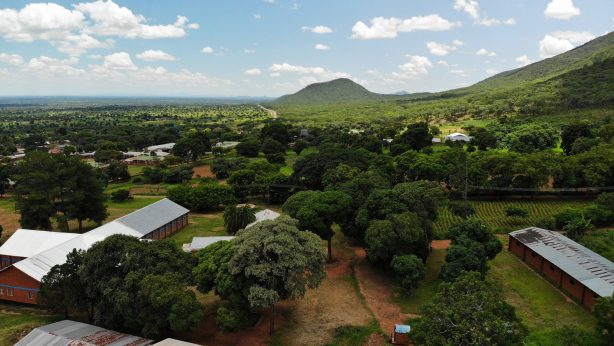Interview with Empower’s Executive Director
Shanil Samarakoon talks about his motivation for starting the organisation and his ambitions moving into the future.
» How did Empower begin?
Empower started as a university project in 2007. I had the idea of a rural electrification project in Sri Lanka – I suggested it to fellow students and there was a lot of interest. The designing and fundraising led to us form a not for profit organisation.
» What inspired you originally?
I was involved with relief efforts after the Tsunami in Sri Lanka (2004) and since then I’ve been passionate about working with developing communities on a social level. Connecting with these impoverished and disempowered people gave me a new sense of purpose.
» How did the experience change your perspective?
I started to see that the so called “poor” were just lacking opportunities and resources that we take for granted. I saw that poverty was more than a lack of economic wealth. I think it has more to do with a loss of hope and losing belief in ability.
» When we’re confronted with images of poverty in the media it’s easy to feel despondent. Mentally, how were you able to take your experience and translate it into action?
The experience pushed me to reflect on how I could contribute toward change. My dream is to be able to create social and environmental impact as a full-time commitment. Now that I’ve finished my Masters, I’m ready to take on the challenge.
» What sets Empower apart from other aid organisations?
I always had a passion for social business models that were financially sustainable. From my experience in Sri Lanka, I saw how charity can actually deepen dependency and disempower. Empower is not a charity – we want to build financially sustainable models that benefit stakeholders and communities in the long term.
» In what way do you think charity can deepen dependency?
Pure charity often addresses the surface issues as being a “lack of” something as opposed to enabling people to mobilise their assets and abilities to help themselves.
» What are your short term goals for Empower?
Firstly, to raise $30,000 (AUD) for our project in Malawi by early 2011. At the same time, we’re looking to develop and finance technology solutions for Zatuba Village, our pilot project in Malawi.
» What are your long term goals?
To secure additional investments into our projects based on the performance of our pilot project. We aim to have on ground operations in Southern Africa within five years, which I plan to manage personally. We’d like to expand our reach into multiple communities within five to ten years.
» Can you tell me about the structure of Empower and the role of volunteers?
Empower has a simple organisational structure. We have a board of three directors, including myself, that is supported by an advisory board of two. We have ten volunteers who cover roles including administration, events, marketing and communications.
Our volunteers are mostly university students from a range of backgrounds. Hopefully, every volunteer can gain useful and meaningful work experience that can improve their ability to deliver professional results.
» Given that Empower’s purpose is not to create profit, how do you plan to keep the company afloat?
In our startup phase we’ll rely on donors believing in our ability to deliver results. There will need to be an element of faith, through investing support in our pilot project. This will be a huge learning experience before expanding into larger scale projects.
Long term, our micro-finance model and earnings from carbon credits (through use of renewable energy) will fund our operations. We will gradually expand our reach if the pilot model is performing well and move away from funding via grants and donations.
» What would be a key indicator of Empower’s success?
Previously dependent communities that achieve self-reliance. Our definition of self-reliance involves enabling access to energy and clean water, food security, improving household income, health, sanitation and access to education.
Another key indicator would be our ability to maintain a project portfolio whilst being financial sustainable. In other words, our funding will be generated through our own activities and not exclusively through charitable sources.
» Looking specifically at your current project in Malawi, in what way is the community of Zatuba Village dependent and how would Empower help the community to achieve self-reliance?
The community lacks access to electricity (they use firewood and kerosene) and running water and have no access to rural finance to fund income generating activities. We’re wary of making assumptions about the community’s capabilities, aspirations and needs until they communicate them to us directly through the mobilisation process, starting next month.


